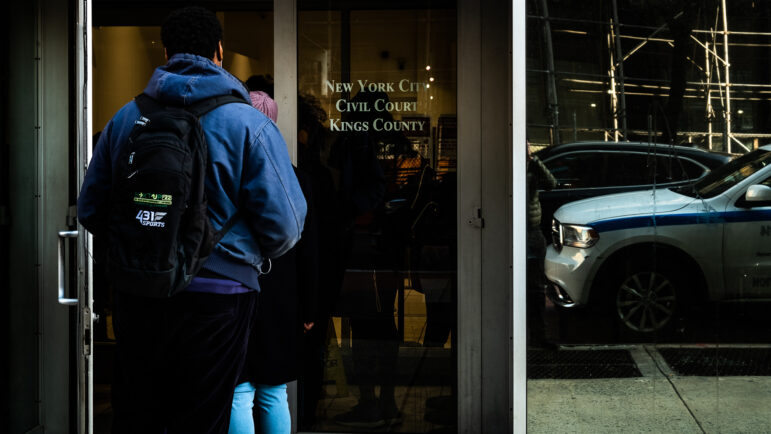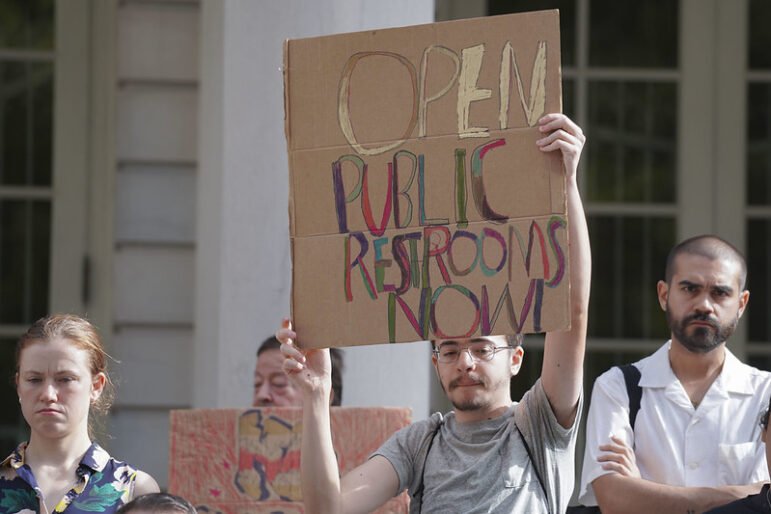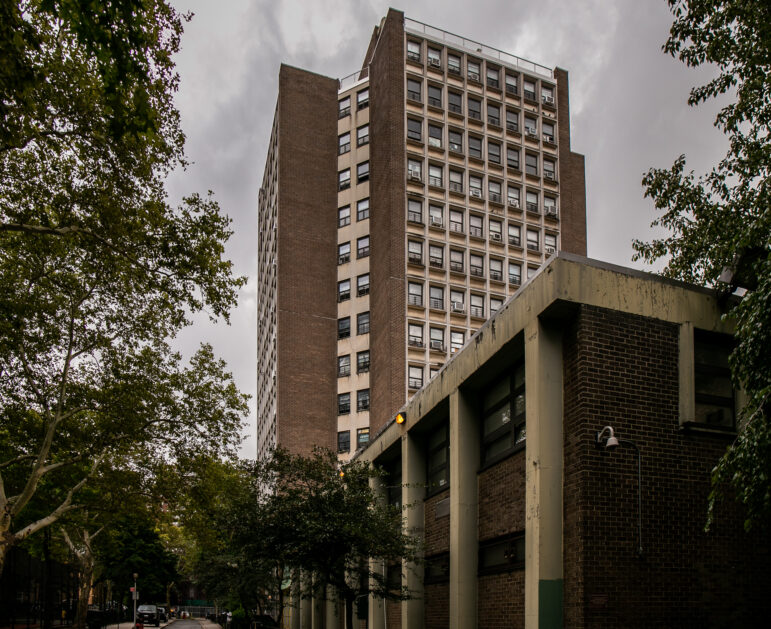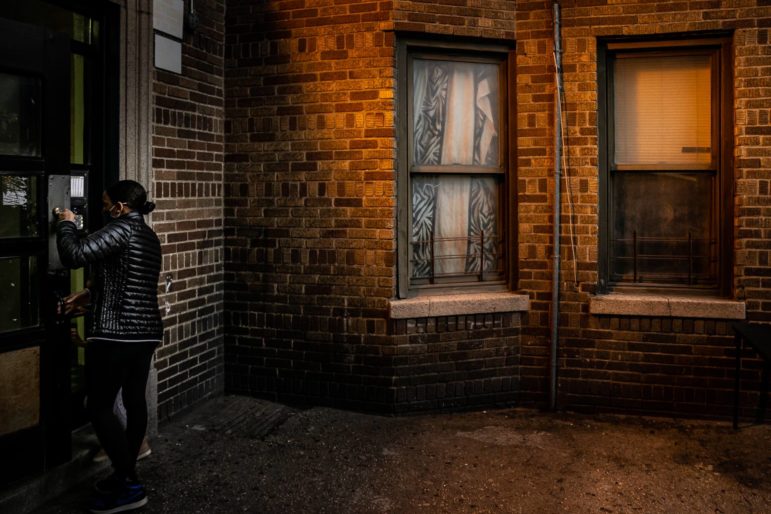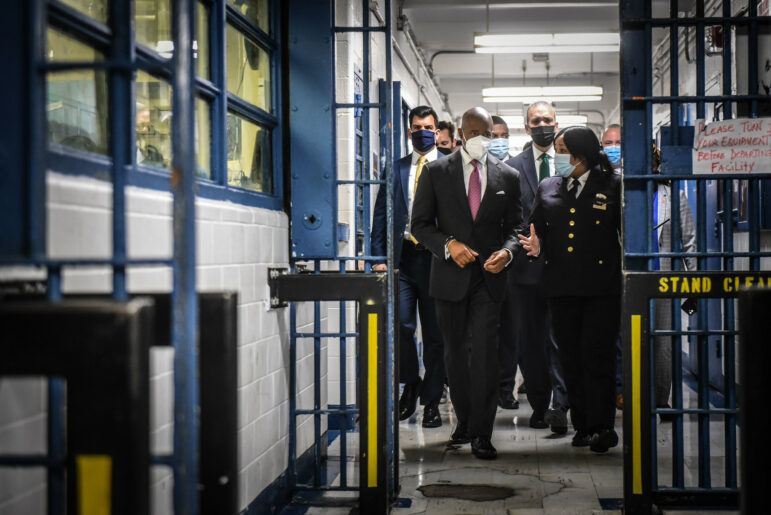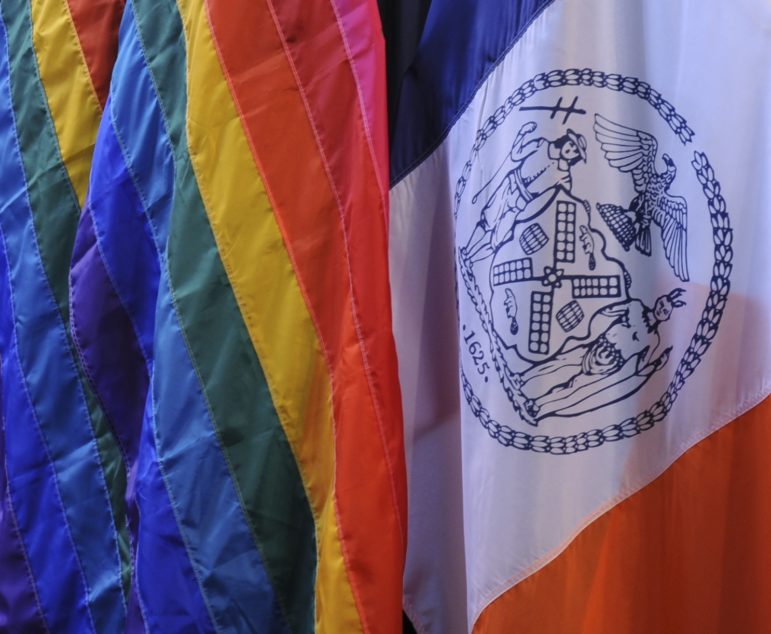
William Alatriste for the NYC Council
It has never been clearer that NYC needs inclusive sexuality education in every school. The results of the first nationwide study on LGBTQ high school students revealed that these students are affected by heartbreaking levels of violence and depression.
This recent national study by the Centers for Disease Control and Prevention found that compared with their peers, LGBTQ youth are significantly more likely to be raped, be threatened or injured with a weapon at school, and be bullied at school. Not only are LGBTQ students vulnerable to violence from their classmates, studies have shown that they are more likely to experience higher levels of intimate partner violence. As a result, these students may be at a substantial risk for suicide, depression, and absenteeism because they do not feel safe.
We’ve long known about the benefits of comprehensive and inclusive sexuality education. Studies have shown that comprehensive sex education promotes positive sexual behavior, including an increase in condom usage, and lower rates of HIV. And one lesser known benefit of comprehensive sex education is its link to the reduction of absenteeism and drop-out rates, as well as improved academic achievement.
Yet even though it has been proven time after time to improve sexual health and reduce risks among teens, comprehensive sex education is important for another crucial reason: to ensure the safety of LGBTQ students. The CDC’s recent study points to the need for inclusive sex education that educates students on the diversity of sexual experiences and gender identity, including lessons on LGBTQ issues and health. Furthermore, the National Sexuality Education Standards has recommended comprehensive sex ed for students in kindergarten through 12th grade—not just in high school—so that schools can start fostering safe environments for all students earlier. Teaching topics like healthy relationships and respect in earlier grades is an important part of sex education that can prevent harassment and intolerance.
Despite the clear need for inclusive sexuality education for all students, many students in NYC are still receiving little to no sexuality education. Whether a student receives sex ed often depends on where they go to school, their school’s resources, and their principal’s commitment to students’ health and safety. In a survey by the Connect to Protect (C2P) Bronx Coalition, one-third of Bronx high school students said they have never received any sexuality education or are unsure if they have. Seventy-four percent said they have not learned about support for LGBTQ youth.
This is a matter of public health and safety. Schools should be a safe place for all students to learn and grow—not a place where they experience violence or feel unsafe simply for being who they are.
In recent months, NYC enacted three bills that require the Department of Education to better track and evaluate health education, services, and teacher training in schools. While improving transparency around sexuality education is a positive step, and while we look forward to the first reports being released in December, this new national study on LGBTQ youth and health risks shows that we have much more to do.
SEANYC urges the Administration to enact a Chancellor’s Regulation requiring comprehensive and developmentally appropriate sexual health education in grades K through 12 that reflects national standards, with a meaningful implementation plan and enforcement measures to ensure that all students receive the sex education they deserve.
It’s past time for schools to provide inclusive sexuality education. The city must direct resources to ensure the delivery of comprehensive sexuality education—including lessons on sexuality, gender identity and expression, and supporting LGBTQ peers—to all students.
The need for inclusive, comprehensive sex education is urgent. No student should ever have to fear the threat of violence or assault because of their sexual orientation or gender identity. New York City must implement comprehensive sex education as a core component of New York City curriculum to make schools safer places to learn for more than one million public school thousands students citywide.
Elizabeth Adams and Emily Kadar are co-chairs of the Sexuality Education Alliance of New York City (SexEdNYC.org).


